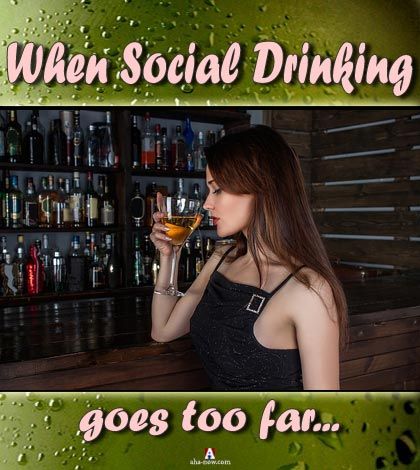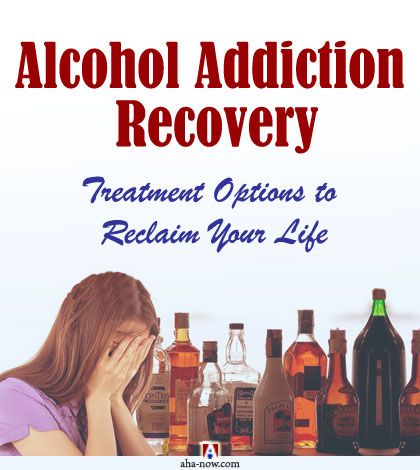When Social Drinking Goes Too Far

Table of Contents
“Just Say No.”
As much as we loved Nancy Reagan — and with all due respect to the former first lady — this is not always an easy option.
Saying No can mean putting relationships, both personal and professional, at risk. It can mean dealing with public shaming and being left out of gatherings.
After all, nobody wants to be the lone sober person at a party any more than the drinkers want someone around who will better remember any mischief they get up to better than they will.
This is also a problem that disproportionately negatively affects women. How so? Well, consider the following stereotypes under which women are forced to operate:
Drinking: Women Vs. Men
During a night of drinking, men are more likely to stick to beers or nurse one or two stronger drinks, allowing them better control over their blood alcohol levels and sobriety.
Women, on the other hand, are often sneered at when they order beers and encouraged to order “girly” drinks. Those girly drinks are made to taste like fruit or candy and are usually made with harder liquors.
They go down fast and spike blood alcohol levels quickly. Add to this the pressure to keep ordering drinks to justify your taking up space in a bar or pub and it’s a recipe for disaster.
Drinking also affects women differently and more severely than it does men on a biological level.
While statistically speaking, men are more likely to develop an addiction; women are the sex that is more vulnerable to the affects–both socially and physically–of drinking and using.
For example, according to Harvard University, women move from use to dependence more quickly than men. It does not take as much alcohol to get a woman drunk or to have adverse affects on her physiology as it does for men.
This is because women’s bodies contain less water (which helps dilute the efficacy of alcohol) than men. Biologically female stomachs and livers also contain fewer of the enzymes needed to break down alcohol than are found in men’s organs.
It is also very important to remember that drinking excessively makes women many times more likely to be victims of violence and assault than are men.
Addiction Issues Women Deal With
And admitting you have a problem is just as difficult for women as it is for men, but women are often treated more harshly for seeking treatment than are men.
It’s no wonder then that in some states (like Texas), centers like Greenhouse report that almost half of their patients seek outpatient treatment (source).
This might also be because addicts of every stripe are reluctant to admit that they have a problem. Sure, denial plays a large role in everybody’s addiction journey.
Another problem–and one that goes largely unacknowledged–is that when you live in a culture where imbibing, not abstention, is the rule, it can be very difficult to tell the difference between a person who is genuinely just a casual social drinker or drug user and one who has developed a problem.
And if your culture is one in which nightly trips out on the town are the norm? This difficulty is multiplied many-fold.
How to Tell the Difference Between Social and Problematic Drinking
More than anything, according to the NIAAA, the difference between social drinking and problematic or addictive drinking is the number of drinks consumed in a sitting and week.
For women, those magic numbers are three and seven. If you keep your drinking below three drinks in one sitting and seven in one week, you are still well within the realm of social drinking.
Now, before anybody rushes out to drink a few growlers, understand that “drink” is not defined by the drink’s container. It refers to the amount of alcohol consumed within the beverage.
Age is also a factor. Going out for alcohol-fueled evenings and weekends is a normal occurrence for people in their early twenties. Many women, upon turning twenty-one, take full advantage of being able to drink legally.
Women who are over thirty who still go out and drink heavily every night are likely problematic drinkers or have become alcoholics. The best way to tell is whether they are able to track their own numbers (one sign of addiction is not knowing how much one has had to drink) and whether they forego their other responsibilities in favor of using.
Drinking: A Gateway Drug?
We were all told as kids that once we started drinking it was only a matter of time before we moved on to harder stuff. Whether or not this is true depends on many factors.
For the majority of women, however, the next step is often pills. 55% of women seek treatment for barbituates while only 45% of men are treated for this type of abuse. Keep an eye on friends who regularly pop something along with their drink. And if you feel like you need that pill whenever you get upset, it’s time to seek help.
Most importantly, know that–in spite of all of the pressure you might face–there are ways to demure from drinking gracefully when you don’t want to drink. Don’t risk your liver to keep a judgmental friend off your back.
Over to you –
What are your views on social drinking? Were you aware of the social drinking problems and how it negatively affects women? Share in the comments.
Disclaimer: Though the views expressed are of the author’s own, this article has been checked for its authenticity of information and resource links provided for a better and deeper understanding of the subject matter. However, you're suggested to make your diligent research and consult subject experts to decide what is best for you. If you spot any factual errors, spelling, or grammatical mistakes in the article, please report at [email protected]. Thanks.











I am an active part of the startup business community here in Austin, TX and one issue I see here that makes it very tough is that so many of these young companies focus business affairs around alcohol. A Friday “beer o’clock” is common and some companies have well-stocked bars and beer in the fridge on a daily basis. These companies also make hiring decisions based on how well you fit in. This makes being the non-drinker in the group rather uncomfortable. It can also be perceived that you don’t fit the company culture.
I’m not a non-drinker but learned early on to stay sober at all business functions. Do you have recommendations for how to manage these situations given that sipping on club soda or juice doesn’t mask non-drinking in a small group setting where everyone sees what you pour into your glass?
This is a very good article, thank you for sharing it. I am only too well familiar with drinking as an addiction due to a family member, He was a man but it does not matter. I learned so much about drinking, I wish I did not. However it has its cons, I do not drink, and I encourage everyone to cut their social drinking to a minimum or zero.
Hi Jenna,
I once thought I was a social drinker. I should had know when my goal was to get drunk every time I drank that I wasn’t.
But that’s how addiction works.
It tricks you.
I didn’t know women were treated diffently
than men when it comes to treatment.
Thanks for pointing that out.
There is only one way to get help and that starts when admitting your powerless.
Hi, Jenna and Harleena,
Your post helps me to understand why females are easier to be addicted to alcohol. Any way, alcohol is very bad to livers (no matter you are man or woman). For the sake of health, it is better to stay away.
The line between social and problematic drinkings is hard to pin point because many factors are involved and each of us has different tolerant level.
Have a nice week.
Stella Chiu
Great article, Jenna. This is a topic we don’t discuss enough. One thing I would add is that hangovers are no fun. This: “…whether they forego their other responsibilities in favor of using.” I think that’s a really telling sign.
Hi Lisa! thanks for reading 🙂
great point! Why do something for a few hours that ruins the next 24 hours… it can become a 2 day process for a lot of people who drink and have trouble with alcohol. yuck!
I see nothing bad in social drinking for men and women so far they are of age, but the most important thing to consider is self-control; “Self-control can make one triumph over ones’ wisdom”. And some women like social drinking to make them feel comfortable around people and somehow get drunk in the process and that will deform their personality, forgetting that “what we think we need the most is what we are best without”.
Hi Jenna,
Nice to meet you here. When it comes to social drinking, I think many people have different interpretations. This is where it gets confusing.
If a person goes out here and there and has a drink or two, I would consider that social. But if they start behaving differently there can be a problem.
I know I’m allergic to vodka. I had it once – one drink…and my personality changed. So I never touch the stuff.
People also don’t consider medications they are taking. They seem to ignore “don’t drink alcohol” on the label but do it anyway. I’ve seen that a lot.
We are all unique and have different variables to consider even if it is one glass of wine.
-Donna
Hi everyone! thanks for commenting!
I also feel like so much of this is your environment not only growing up but also in the now and present! If your in a town in the middle of nowhere maybe the whole town is at the pub, or maybe you leave near the beach and everyone is vacationing and partying constantly so you get swept up in it! The social pressures on not just women but men as well can build so quickly in certain settings!
Moderation is key with everything! I am very curious what would happen to the “alcohol industry” as there is more awareness, use, and support for marijuana… could it replace it? I don’t know much about it but it seems safer?
Hi Jenna
Reading this post is just interesting. Drinking can be a habit to break and when you are in an environment where drinking is imbibed in culture, it is only a matter of time before one goes for hard stuff.
Thanks for sharing. Take Care
Social drinking has never been an issue for me because I grew up in a family where we had a drink on special occasions, birthdays, etc.
Also my father made Jamaican rum punch for parties and would jokingly caution someone who appeared to be drinking to extreme. He did it in a way that left the guest with a sense of face.
So when I was at parties in my late teens and at college I would easily choose to not drink occasionally. If someone tried to shame me for not drinking I no longer socialized with them. I no longer considered them worthy of my presence.
We need to have a strong sense of self-worth. When I’m in that place what other people think of my drinking is irrelevant. What I think of my drinking is the most important factor. Does drinking interfere with my life and prevent me from achieving my goals? That’s the factor I use to determine when I drink and how much I drink.
Hi Jenna. Great to meet you! Hi Harleena and Vinay!
I had to pop over and read this. As someone who grew up with an alcoholic father, a “functioning alcohol”, I like to read about the other type of alcohol addiction. In my 20’s, I may have overdone it a bit. I realized that in my 30’s and slowed down to a social drinker. Now, I’m like a 1 or 2 beer girl a month person. Watching how alcohol has affected family and friends, I decided it just wasn’t my cup of tea. It’s dangerous for our health and I don’t like the feel of being drunk nor hungover.
This is a very informative post that I think many should read. I’m happily passing it along.
B
I grew up in Europe, where alcohol is a normal part of everyday life. Wine is consumed as part of the main meal, liqueurs are served after dinner or when company arrives. Champagnes or sparkling wines are used to mark special occasions. There’s no taboo about alcohol (which makes it no big temptation) and children are taught early in life how to handle it. Legal drinking age in most countries is 16, but it’s not strictly enforced. Moderation is the key! In my opinion, the North American taboos about alcohol (and sex) are detrimental. Preaching abstinence does not work. Education does. As for those “girly” drinks; it’s the sugar in the mixers that speed inebriation. Straight alcohol is better.
Hey Jenna and Harleena,
Nowadays people are getting addicted to the drinking habits. It’s like a trend to drink daily. Most of the people prefer to drink during the weekends and that’s good.
But what about the daily drinker? It won’t be good for their health and mental strength. It’s good to remain away.
Thanks for letting me know more about it.
Hope you both are enjoying the day.
~Ravi